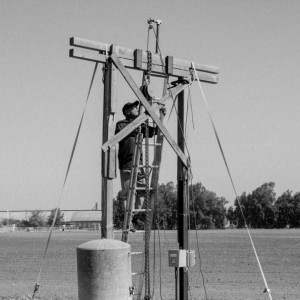The Stream, November 26: 2015 Will Be Hottest Year On Record
The Global Rundown |
This year will almost certainly be the hottest on record, the World Meteorological Organization announced, and global carbon emissions slowed last year, increasing 0.5 percent. Alaska and British Columbia signed an agreement to improve water quality monitoring in transboundary waters, focusing on mine development in the wake of the Mount Polley mine disaster. The United Nations released a statement saying the mud released during Brazil’s recent mine disaster was toxic. A drought in Somaliland has threatened the food security and livelihoods of hundreds of thousands of people, while vandals in drought-hit California released millions of liters of water from a storage dam.
“There were significant, record heatwaves in many parts of the world [in 2015]. Can we attribute these extreme weather events to climate change? When it comes to temperature, the answer is increasingly yes for some of the big ones.”–Michel Jarraud, secretary-general of the World Meteorological Organization, on the agency’s announcement that 2015 will be the hottest year on record. Global temperatures are now 1 degree Celsius above pre-industrial levels. (Guardian)
By The Numbers |
240,000 people Number who face food insecurity in Somaliland. A drought there has also decimated livestock herds. Guardian
189 million liters Amount of water released when an inflatable dam in California was damaged by vandals. The water was enough to supply 500 homes for a year, according to police. Reuters
Science, Studies, And Reports |
Global carbon emissions increased 0.5 percent in 2014, much slower than the 4 percent annual average over the past decade, according to figures published by the Netherlands Environmental Assessment Agency. Emissions declined in Europe, but grew dramatically in India. Guardian
The mud spilled from two tailings dam failures at an iron ore mine in Brazil “contained high levels of toxic heavy metals and other toxic chemicals,” according to a statement released by the United Nations Office of the High Commissioner for Human Rights. The mine operator said the material does not pose risks to human health. Reuters
On The Radar |
More than a year after a tailings spill at the Mount Polley mine in British Columbia, the Canadian province signed a memorandum of understanding with Alaska to jointly monitor water quality in transboundary waters. The agreement also proposes more coordination between the two governments on environmental assessments and permits for new mines. Reuters
A news correspondent for Circle of Blue based out of Hawaii. She writes The Stream, Circle of Blue’s daily digest of international water news trends. Her interests include food security, ecology and the Great Lakes.
Contact Codi Kozacek







Leave a Reply
Want to join the discussion?Feel free to contribute!